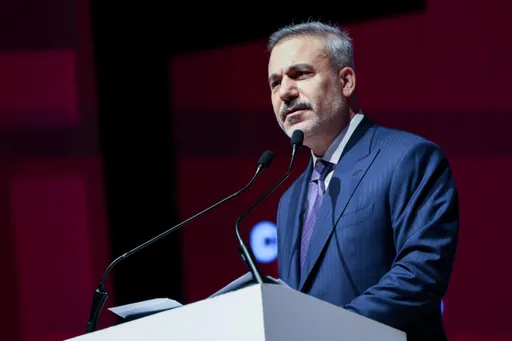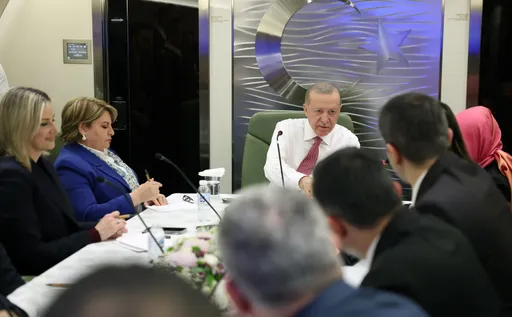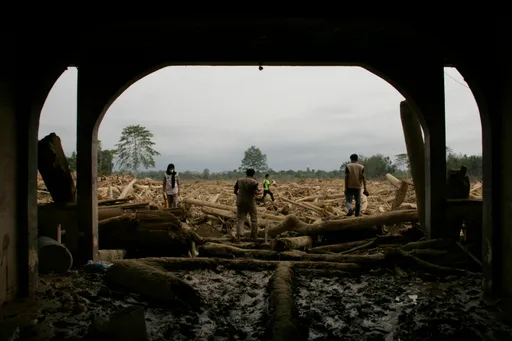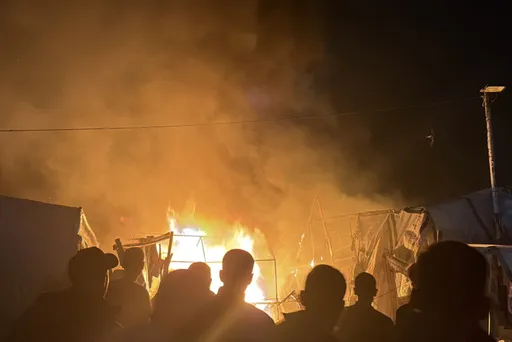As the Trump administration withdrew from the Iran nuclear deal, sanctions were imposed on Tehran. The second phase, which was announced on November 5, was described as some of the most stringent sanctions ever by Trump. This new wave of coercive measures targets critical sectors of Iran’s economy, such as energy, shipping and shipbuilding and the financial sectors.
Punitive measures are nothing new to the Islamic Republic. The country has been under sanctions by the US for almost 40 years. The Iranian authorities claim they developed the resilience needed to deal with sanctions no matter how tough they are. In this context, President Hassan Rouhani stated: “We will proudly break these illegal, unjust sanctions.”
The US often resorts to coercive economic measures as part of its diplomatic pressure on states that do not align with Washington's foreign policy objectives. Such policies are not only meant to show the economic strength and overall dominance of the US as a superpower, but they also intend to provoke uprisings in the poverty-stricken populace.
However, there is a gap between theory and practice, and many experts believe that these policies do not break the grip of regimes in power, as seen in the cases of Venezuela, Cuba, Iraq, and North Korea. The more recent sanctions against Russia over Crimea have been entirely futile. Sanctions only harmed the poor people of these countries rather than bringing policy changes by their respective governments, just because the regimes’ ‘centres of gravity’ are usually shielded from the effect of the sanctions. Also, the sanctioned states become a lot more aggressive and use repressive means that thwart any uprising plans.
Besides, economic strictures are counter-productive. Iran has lived under different boycotts, and its regime built its political legitimacy on anti-American rhetoric. The authorities will merely use this new wave of sanctions to unite the people under its leadership further. In fact, huge demonstrations already took place on November 4 to protest against the US policies.
Despite claims to the contrary, the first affected will be the low-income population and the working class as they are not capable of dealing with the expected impact of the US-imposed measures. The middle class will also have trouble with sanctions due to high inflation rates which will deplete the purchasing power for all Iranians.
While Mike Pompeo insisted that sanctions will not involve food, medicine and basic humanitarian goods, US measures have already restricted the transfer of money which affects the importation of food and medicine. The price for medication, such as the one needed for cancer treatment, has become exorbitant. Additionally, Iranians living abroad will also be heavily impacted because of the restrictions on Iran's banking system. SWIFT, the international system for money transfer, removed its access to the Central Bank of Iran. Consequently, countless Iranian students may not be able to receive money transfers from Iran.
Interestingly, the US exempted eight countries from sanctions on importing Iranian oil for six months, so they can still do business with Iran. Some observers considered such a step indicates which nations are being treated favourably by Trump. Others estimate that this exemption demonstrates the failure of this policy, which was imposed unilaterally and could not get support from Europe and other countries.
Iran has emerged cleared of any wrongdoing in this particular case. Tehran has been committed to the nuclear agreement and has respected its part of the deal. The US, on the other hand, seems to be in breach of international law. Besides, by moving against Tehran unilaterally, the White House is damaging its transatlantic relations and undermining its allies. Consequently, the Trump administration has not won the battle for world public opinion given that it pursues a bellicose course of action without any valid reasons.
In the foreseeable future, the United States is not likely to remove sanctions or change course in its approach vis-à-vis Iran. In the meantime, the Islamic Republic will adapt to the new situation by finding ways to export its oil and gas via different routes. The Iranian Foreign Minister Javad Zarif expressed his confidence that the Iranian oil industry would find markets. “There are always markets for oil, it depends on the conditions and the price,” he said. “I believe Iran will always sell oil.”
Geopolitically, Tehran will seek - more than ever - to damage US client states in the Middle East, such as Saudi Arabia. The latter has been considerably weakened by its ill-conceived war in Yemen and the grisly killing of Jamal Khashoggi. Also, it is predicted that Tehran will get closer to Moscow and cement their strategic relationships. Finally, Tehran will enhance its relations with neighbouring countries, which provide a crucial lifeline for Iran’s economy. These measures mean that Trump’s approach is not only doomed to fail but it also does not serve the purpose for which it was initially intended.
























